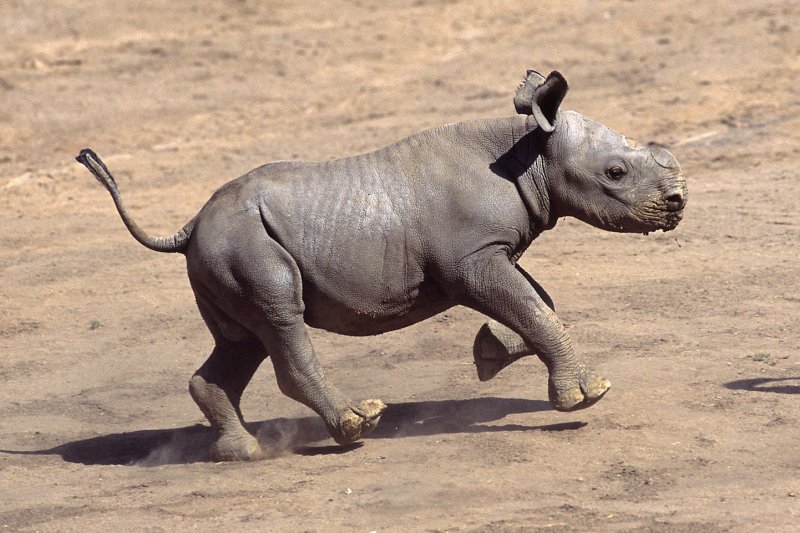Black rhinoceros are now only found in small pockets of eastern and southern Africa, numbering at a mere 3,600. In 1970, there were 65,000 black rhinos throughout larger areas of Africa, but poaching and loss of habitat have caused a devastating decline in the population of all five rhino species. (UPI Photo/Ken Bohn/San Diego Zoo) |
License Photo
CAPE TOWN, South Africa, July 14 (UPI) -- More than 500 rhinos -- and more than 150 in just the last two months -- have been killed in South Africa so far this year, putting the country on pace to break last year's record of more than 1,000 poached rhinos.
Rhino poaching has been rising dramatically since 2007, fueled largely by demand in Vietnam for the animal's horn. Rhino horn was once used in traditional Chinese medicine, but today its mostly sought by the affluent in Asia, especially Vietnam. It's used as a hangover cure and a recreational drug.
"We are going to reach the tipping point for rhinos," said Naomi Doak, a wildlife expert an conservationist with the wildlife monitoring network, Traffic. "By the end of 2014, we're starting to be in the negative in terms of deaths and poaching outstripping birth and the population will start to decline very quickly."
Arrests for poaching are also up, but advocates say more should be done to discourage poaching activities.
"We have a massive crisis on our hands and the department needs to be doing more to stop it," said Allison Thomson, director of the South African Citizens against Rhino Poaching. "We claim that we know how much these animals are worth to us, in terms of tourism, but we are not protecting them."
"Very few of these cases are pursued to the very end, so we need all sectors to play a part," she added.
But experts suggest that -- like so many other black markets -- the illegal rhino trade won't slow until the demand for the horn -- essentially made of the same material as human fingernails -- is curbed. Currently, 100 grams of rhino horn sell for roughly $6,000 on the streets of Vietnam. It's more expensive, and more lucrative, than gold.















